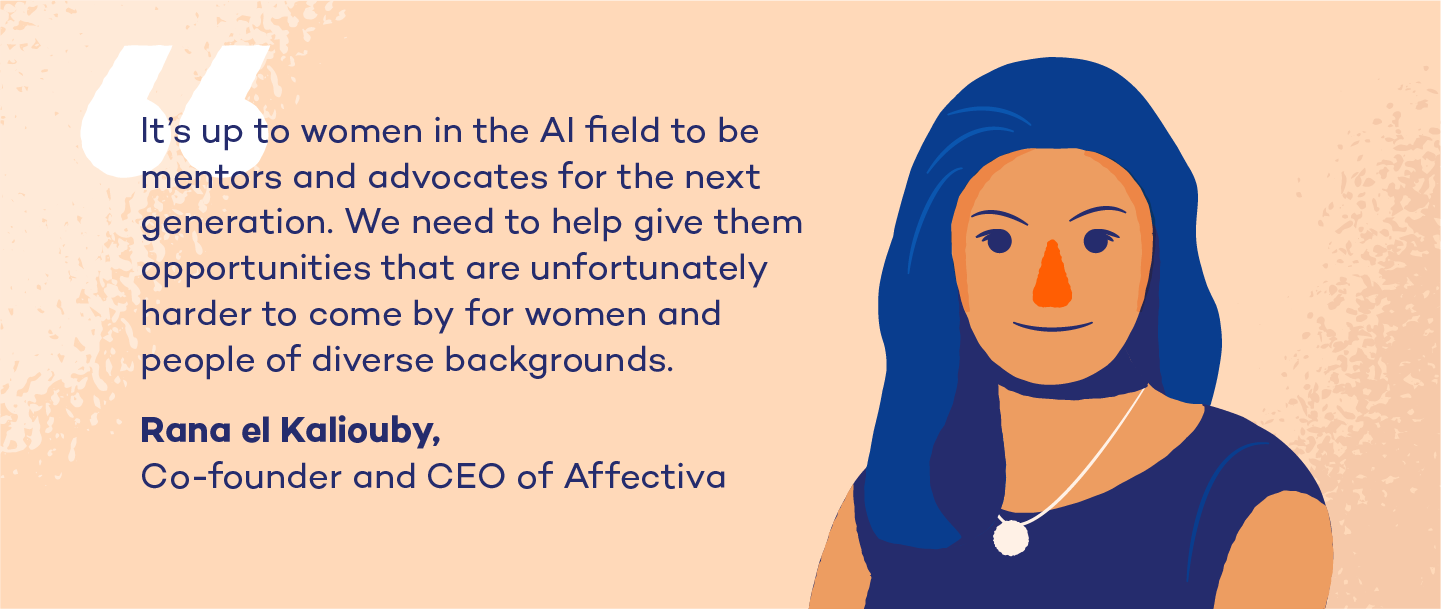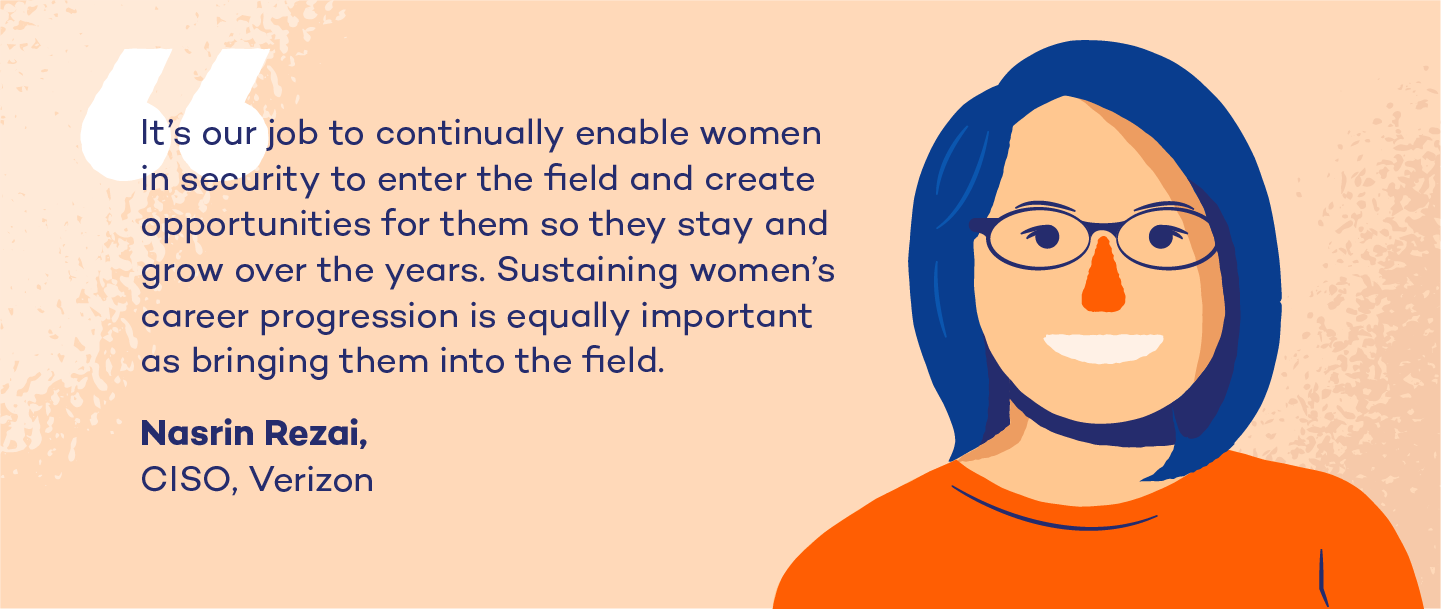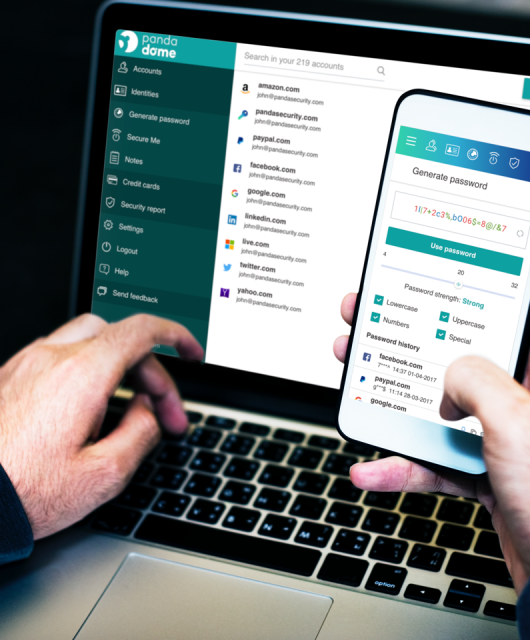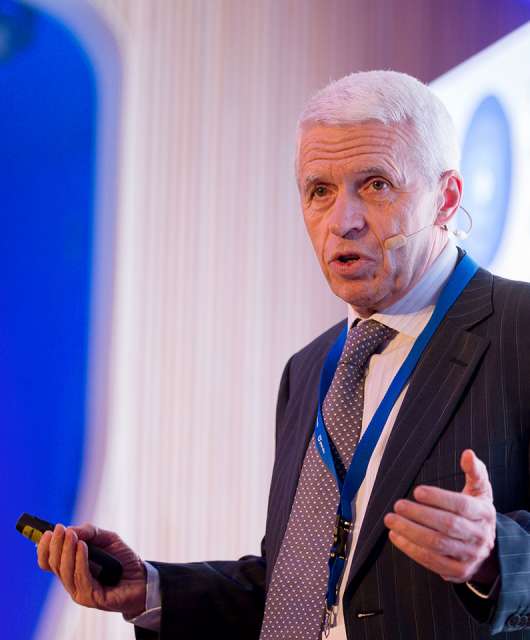Women make up 20% to 25% of cybersecurity professionals. While this is an improvement from a mere 11% since 2017, historical obstacles remain for women looking to join or move up in the massive global industry of security.
In addition to the large gender disparity in cybersecurity, women in the field are compensated less on average than men. In 2023, U.S. women in cybersecurity got $141,066 per year (average) compared to U.S. men who got $148,035 per year.
Amid all of this is the staggering increase in cybercrime — particularly ransomware — one thing is clear: Cybersecurity needs more women. Employers should prioritize attracting, empowering and retaining talented female cybersecurity professionals if they want to build strong cultures of cyber resilience across the globe.
Luckily, there are plenty of incredible women blazing the trail for a more diverse and inclusive industry in the world of security. Take a look below at some of today’s most notable women in cybersecurity to learn how they’re reshaping the industry as we know it.
Top Women in Cybersecurity
- Sarah Armstrong-Smith (Chief Security Advisor — EMEA, Microsoft)
- Wendy Thomas (CEO, Secureworks)
- Kirsten Davies (Villager, Team8)
- Rana el Kaliouby (AI Advisor, Smart Eye)
- Mary Ann Davidson (Chief Security Officer, Oracle)
- Jadee Hanson (CISO, Vanta/Code42)
- Chani Simms (Managing Director and Co-Founder, Meta Defence Labs Ltd / Founder of SHe CISO Exec.)
- Jessica Barker (Co-Founder and Co-CEO, Cygenta)
- Natasha Sayce-Zelem (Global Head of Partner Engineering, Amazon)
- Theresa Payton (CEO, Senior Partner and President, Fortalice Solutions)
- Keren Elazari (Security Analyst and Researcher, Tel Aviv University)
- Lakshmi Hanspal (Member of the Board of Advisors, University of California, Merced)
- Nasrin Rezai (SVP, Chief Information Security Officer, Verizon)
- Shivon Zilis (Director of Operations and Special Projects at Neuralink)
- Kate Maxwell (Partner & General Manager, Microsoft)
- Tammie Tham (Group CEO, Ensign InfoSecurity)
1. Sarah Armstrong-Smith
Company: Microsoft, Chief Security Advisor (EMEA)
Accolades:
- A frequent speaker at industry conferences
- Author: Understand the Cyber Attacker Mindset
- A sought-after expert in the cybersecurity field
Sarah Armstrong-Smith is a prominent figure in the cybersecurity industry, who provides expert guidance to organizations on developing robust cybersecurity frameworks, mitigating risks and adapting to the evolving threat landscape. Currently, she holds the position of Chief Security Advisor for Europe, the Middle East and Africa (EMEA) at Microsoft, playing a key role in shaping Microsoft’s security strategy.
Her responsibilities extend to overseeing and leading various security initiatives within EMEA and ensuring that Microsoft customers across the region are equipped to defend against cyber threats.
In addition, Armstrong-Smith is a frequent speaker at industry conferences and has contributed significantly to cybersecurity discourse through her publications and research.
Impact on the cybersecurity industry: Her book, Understand the Cyber Attacker Mindset, has transformed how companies approach cybersecurity by highlighting the importance of understanding attacker psychology.
2. Wendy Thomas
Company: Secureworks, CEO
Accolades:
- Former President of Customer Success at Secureworks
- Successfully implemented a customer-centric approach in her previous role
- A major influence on Secureworks’ ascent in the cybersecurity industry
Wendy Thomas is the CEO of Secureworks, a globally recognized cybersecurity powerhouse. Her strategic vision and leadership have been major players in driving Secureworks’ growth and success.
Thomas’ journey within Secureworks is impressive. Joining the company in 2008, she held key leadership roles in finance, strategy, product development and customer success. Her deep understanding of the business, coupled with her proven track record, culminated in her appointment as CEO in 2021.
Impact on the cybersecurity industry: Before assuming the CEO role, Thomas served as Secureworks’ President of Customer Success, where she successfully implemented a customer-centric approach. As part of her dynamic leadership, Wendy drives diversity and inclusivity at SecureWorks through various initiatives and programs, bridging the gender gap in cybersecurity.
3. Kirsten Davies
Company: Unilever, CISO
Accolades:
- University of Puget Sound: B.A., International Political Science & Government
- International Institute of Human Rights (Strasbourg, France): International Law, Human Rights certificates
- Johns Hopkins University: International Law and Business, Human Rights certificates
- Prosci Institute: Advanced certificate in Change Management
Having lived and worked on four continents, Kirsten Davies’ global approach to information security, data privacy and enterprise risk has led to her recognition as a true thought leader in cybersecurity transformation. Her skillful approach to cybersecurity has led to accomplishments like building Africa’s first end-to-end security function and negotiating the first-ever Cyber Security Master Agreement with the German Workers Council for Hewlett Packard Enterprise.
Prior to her newest role as Villager (a fancier term for CISOs) at Team8, she was the global CISO for Unilever and served as CISO for The Estée Lauder Companies. Here, she led a foundational restructuring of core cybersecurity capabilities, overhauled the information security policy suite, commanded the data integrity program and doubled the size of the program — all while prioritizing diversity and inclusion across all genders and ethnicities.
Impact on the cybersecurity industry: Davies achieved the first-ever Cyber Security Master Agreement with the German Workers Council for Hewlett Packard Enterprise (HPE), now replicated across HPE’s 20+ Works Councils in EMEA.
4. Rana el Kaliouby
Company: Smart Eye, AI Advisor
Accolades:
- University of Cambridge: Ph.D., Computer Science
- Massachusetts Institute of Technology: Post-Doc, Computer Science & Technology
- Board Advisor: Boston Children’s Hospital Simulator Program
- Executive Fellow: Harvard Business School
- Steering Committee Member: All Raise
Rana el Kaliouby is an Egyptian American scientist, entrepreneur and AI leader on a mission to bring emotional intelligence to the world of AI. Since growing up in the Middle East and moving to the United States to become an entrepreneur, she’s spearheaded the application of artificial emotional intelligence in a slew of industries and established herself as a global leader in AI.

After making her exit as CEO of Affectiva — an MIT spin-off company she co-founded to humanize how people interact with technology — she stepped into her current role as AI Advisor (earlier CEO) of Smart Eye, which acquired Affectiva in 2021. Her work is helping to scale the company to a global AI powerhouse, with a key focus on ethics, diversity, equity and inclusion.
Rana’s track record for using innovative technology to address the needs of several international markets reflects her deep passion for ethical AI in today’s digitally driven world. She’s applied her skills to various markets, including automotive, robotics and education, as well as areas like mental health and autism.
Impact on the cybersecurity industry: Established and continues to lead the emotional AI industry. Her book, Girl Decoded, inspires women to be a pioneering force in the field of emotional intelligence.
5. Mary Ann Davidson
Company: Oracle, Chief Security Officer
Accolades:
- Information Technology Information Sharing and Analysis Center (IT-ISAC): Board member
- Information Systems Security Association (ISSA): International board member
- Among one of Information Security’s top five “Women of Vision”
- Inducted into the ISSA Hall of Fame
- CSIS Commission on Cybersecurity (44th Presidency): Member
Mary Ann Davidson is a highly respected figure in the cybersecurity industry, renowned for her extensive career and significant contributions to the field. Davidson currently holds the position of Chief Security Officer at Oracle, overseeing the software security assurance process for all Oracle products and services.
She is a prominent figure in the cybersecurity community, serving on the board of directors of the Information Technology Information Sharing and Analysis Center (IT-ISAC) and the international board of the Information Systems Security Association (ISSA). Her achievements have earned her recognition as one of Information Security’s top five “Women of Vision” and induction into the ISSA Hall of Fame.
Davidson has played a crucial role in shaping cybersecurity policy in the United States. She was a member of the CSIS Commission on Cybersecurity for the 44th Presidency, providing expert advice on cybersecurity challenges and strategies to the Obama administration.
Impact on the cybersecurity industry: Davidson has shared her expertise with the U.S. Congress, testifying before multiple Senate and House committees on critical cybersecurity issues. Her insights have informed legislative initiatives aimed at enhancing national cybersecurity.
6. Jadee Hanson
Company: Vanta, CISO
Accolades:
- Frequent speaker at industry conferences
- Authored several articles and white papers on data protection and cybersecurity trends
- Mentor and advocate for women in cybersecurity
Jadee Hanson is the CISO at Vanta, where she spearheads the company’s cybersecurity initiatives. Her responsibilities include developing security strategies, managing risks and promoting a security-conscious culture. Under her leadership, Vanta has significantly strengthened its security frameworks and incident response protocols.
Before Vanta, Hanson was the CISO and CIO at Code42, where she transformed the company’s security infrastructure by establishing robust data protection strategies. Her career also includes key positions at Target, during which she developed several security policies and programs that exist today.
Hanson frequently speaks at industry conferences, sharing insights on emerging threats, such as different types of malware, and best practices. She has authored articles and white papers on data protection and cybersecurity trends. Hanson is involved in industry initiatives, participating in panels and working groups to shape standards and advocate for stronger security policies.
Impact on the cybersecurity industry: With certifications like CISSP and CISA, she is a mentor and advocate for women in cybersecurity, inspiring the next generation of professionals through her podcasts at Code42.
7. Chani Simms
Company: Meta Defence Labs Ltd, Managing Director and Co-Founder
Accolades:
- Founder: SHe CISO Exec. Cybersecurity Leadership Empowerment program
- Co-founder: InfoSec for Equality and Women
- Licensed Computer Hacking Forensics Investigator (EC-Council)
Chani Simms is an award-winning cybersecurity leader and C-level advisor who helps organizations implement information security and data protection programs. She began working as an IBM engineer specializing in IT infrastructure, systems management, virtualization and data centers while studying for her computer science degree.

Eventually, she worked her way up to specialize in IT and security and now works with SMEs as a virtual CISO, data protection officer, Cyber Essentials Assessor and IASME governance auditor. In addition to managing security company Meta Defence Labs, she went on to found SHe CISO Exec., a global training and mentoring platform for information security industry professionals.
Impact on the cybersecurity industry: Chani founded SHe CISO Exec. to train information security professionals and create emotionally intelligent cybersecurity leaders.
8. Jessica Barker
Company: Cygenta, Co-Founder and Co-CEO
Accolades:
- Renowned for expertise in the human aspect of security
- Author: Confident Cyber Security
- Recognized for creating a more resilient security posture for organizations
Jessica Barker is renowned for her expertise in the human aspect of security. As the co-founder and co-CEO of Cygenta, she has dedicated her career to positively influencing cybersecurity awareness, behaviors and culture worldwide.
Barker’s journey into cybersecurity was driven by a passion for understanding how human behavior intersects with technology. Her role at Cygenta allows her to translate this passion into practical solutions for organizations.
Her focus on the human side of security distinguishes her from many of her peers. While technology is undoubtedly crucial, Barker recognizes that people are often the weakest link in the security chain. By addressing the human element, she aims to create a more resilient security posture for organizations.
Barker’s contributions to the cybersecurity landscape are multifaceted. Her work has centered on developing innovative approaches to enhance security awareness programs, making them engaging and effective.
Impact on the cybersecurity industry: Barker’s influence extends beyond her work at Cygenta. She is a frequent keynote speaker at industry conferences, sharing her insights with a global audience. Her publications, including the bestselling book “Confident Cyber Security,” have become essential reading for cybersecurity professionals.
9. Natasha Sayce-Zelem
Company: Amazon, Global Head of Partner Engineering
Accolades:
- Founder: Empowering Women with Tech
- Breaking the stigma surrounding information technology and promoting creativity in STEM careers
- Advocates for and helps women harness their skills to pursue careers in STEM
Natasha Sayce-Zelem is Amazon’s global head of partner engineering — a seemingly unlikely title, considering her early career as a freelance music photographer.
Prior to her role at Amazon, Natasha was the head of technology at broadcast media company Sky, where she commanded the digital trading department using machine learning and conversational user interface technology to develop data-driven customer journeys.

In 2016, she founded Empowering Women with Tech, a support network showcasing female role models working in science and technology with the goal of encouraging more women to consider a career in STEM. One of her focus areas is breaking the stigma surrounding information technology and teaching women just how creative a career in technology and science can be.
Impact on the cybersecurity industry: Natasha Helps women harness their untapped skills and encourages more women to find a career in STEM. Her advocacy for women in tech helps create a more diverse workforce, which is crucial for addressing the cybersecurity skills gap and fostering innovation.
10. Theresa Payton
Company: Fortalice Solutions, CEO, Senior Partner and President
Accolades:
- First female CIO at the White House under President George W. Bush
- Enhanced national cybersecurity and modernized IT infrastructures at the White House
- Respected author, public speaker and television commentator on cybersecurity
Theresa Payton is the CEO, Senior Partner and President of Fortalice Solutions, a leading cybersecurity consulting firm. At Fortalice, Payton leverages her extensive experience to protect organizations from cyber threats, providing strategic guidance and implementing advanced security measures. Her leadership has positioned Fortalice as a trusted advisor in the cybersecurity industry, helping clients navigate complex security challenges.
Payton made history as the first female CIO at the White House, serving under President George W. Bush. In this role, she enhanced national cybersecurity, modernized IT infrastructures and implemented innovative security protocols to protect sensitive information.
Impact on the cybersecurity industry: Her contributions to the field extend beyond her tenure at the White House. Payton is a respected author, public speaker and television commentator, sharing her expertise on cybersecurity trends and best practices.
11. Keren Elazari
Company: Tel Aviv University, Security Analyst and Researcher
Accolades:
- Renowned for insightful analysis and extensive research in digital security
- First Israeli woman to deliver a TED Talk on hacking and security
- Founder: Leading Cyber Ladies
- Co-founder: BSidesTLV, a prominent hacker community event
Keren Elazari is renowned for her insightful analysis, extensive research and passionate advocacy for digital security. As a Senior Researcher at Tel Aviv University’s Blavatnik Interdisciplinary Cyber Research Center, she bridges the gap between academic exploration and real-world security challenges.
Her research delves into the complex interplay of technology, society and security, providing valuable insights for both policymakers and practitioners. By anchoring her work in academia, she contributes to the development of innovative security solutions and fosters a new generation of cybersecurity experts.
Elazari’s research findings have been featured in prestigious publications such as Scientific American, Wired and Gigaom, demonstrating the significance of her work. She is a sought-after speaker at international conferences and events. Notably, she was the first Israeli woman to deliver a TED Talk, where she captivated audiences with her unique perspective on hacking and security.
Impact on the cybersecurity industry: Beyond her research and speaking engagements, Elazari is a vocal advocate for diversity and inclusion in cybersecurity. She is the founder of Leading Cyber Ladies, an initiative aimed at empowering women in the field. Additionally, she co-founded BSidesTLV, a prominent hacker community event.
12. Lakshmi Hanspal
Company: University of California, Merced, Member of the Board of Advisors
Accolades:
- Boston University: M.S., Computer Science
- Member: Board of Advisors at the University of California, Merced
- Advocate for digital transformation and socially conscious commerce
- Promotes women in technology and develops the next generation of female talent
Lakshmi Hanspal is a trailblazer in the digital and cybersecurity world, championing security leaders to fully evolve into their increasingly critical roles. Her skills in information security, risk management and privacy have led her through an array of senior positions, where she’s combined her cybersecurity expertise with her talent for driving engagement and collaboration among C-suite executives to facilitate buy-in on key security initiatives.

Passionate about securing digital transformation and supporting socially conscious commerce, Lakshmi advises several Silicon Valley startups and serves on the advisory boards of eight cloud companies. She most recently joined the board of directors for Spectrum Labs, a company dedicated to building safe, inclusive, engaged online communities through the power of AI and making the internet a safer place for all.
Aside from leading the charge for collaborative, business-centric global security solutions, Lakshmi also works to promote women in technology and develop the next generation of female talent. Prior to her current role as a Member of the Board of Advisors at the University of California, Merced, she was Amazon’s global chief information security officer — and global chief security officer at Box before that, becoming the third woman on Box’s executive board.
Impact on the cybersecurity industry: Lakshmi is known for advocating for greater organizational cybersecurity buy-in and teaching leaders how to create organizational cultures of security built upon trust.
13. Nasrin Rezai
Company: Verizon, SVP, Chief Information Security Officer
Accolades:
- Harvard Business School: Leadership Development certification
- Designs security solutions for large enterprises and champions a stronger security culture
- Expertise in global technology risk management and transformative risk culture change
- Advocates for a more accessible, humanized approach to cybersecurity
Nasrin Rezai is a technical visionary and agent of change in the world of cybersecurity. Unafraid to dive headfirst into the evolving security challenges faced by business leaders, her commitment to changing the way we think about cybersecurity has enabled her to design security solutions for large enterprises and champion a stronger security culture.

Her skills in global technology risk management — and promoting risk culture — have taken her through various chief information security officer roles. She currently serves as the CISO at Verizon, where she commands the firm’s information security strategy to protect its customers and leading networks.
Working from the mantra “Do your part. Be cyber smart,” Nasrin is actively working to shift society’s view of cybersecurity from something scary and inaccessible to something we all play a role in for the greater good. She’s also passionate about helping others develop their potential, especially women pursuing leadership roles in the tech industry.
Impact on the cybersecurity industry: She advocates for a more accessible, humanized approach to cybersecurity for all — consumers, businesses and society. Her commitment has enabled her to develop solutions for major organizations and promote a stronger security culture.
14. Shivon Zilis
Company: Neuralink, Director of Operations and Special Projects
Accolades:
- Yale: B.A., Economics and Philosophy
- Board Member: OpenAI
- Fellow: Creative Destruction Lab
Ruthlessly dedicated to machine intelligence for good, Shivon Zilis has spent most of her career focusing on how machine learning can solve pressing real-world problems. Her journey has taken her from project director at Tesla to partner and founding member of Bloomberg Beta, a $75 million venture fund that invests in startups transforming the future of work, to her current position as founding fellow of Creative Destruction Lab.
In addition to her position as a board member for OpenAI (until March 2023), an AI research company dedicated to ensuring that AI benefits all of society, she’s been heads-down at Neuralink since 2017, developing the future of brain-machine learning by building devices to help people with paralysis.
Impact on the cybersecurity industry: Shivon developed brain-machine interfaces to build innovative devices for people with paralysis.
15. Kate Maxwell
Company: Microsoft, Partner & General Manager
Accolades:
- University of Pittsburgh at Johnstown: B.S., Computer Science
- George Mason University: Master’s in Systems Engineering
- Board Member: The Startup Ladies
- Board Member: TechPoint Foundation for Youth
Prior to her current role with Microsoft’s Worldwide Defense & Intelligence (D&I) division, Kate Maxwell put her knowledge of computer science and systems engineering to work for 16 years in the aerospace field, working for defense contractor Raytheon Technologies to better understand frontline defense technology.
As her expertise grew, she found the corporate contractor environment wasn’t suited to her passion for bringing disruptive, innovative technology ideas to life, which ultimately led to her digital transformation position at Microsoft.
While digital transformation in government is its own challenge, Maxwell has proven determined to follow her passion for leveraging the intersection of technology and culture to advance organizations, missions and multinational alliances.
“As technologists, we often run after the amazing and shiny new technology,” she says. “But if we don’t get the culture right and really seek to understand how people and technology interact, that new technology is not going to take hold. Period.”
Impact on the cybersecurity industry: Kate is known for using cloud computing, artificial intelligence, machine learning and high-performance computing to deliver digital transformation to the international defense allied community.
16. Tammie Tham
Company: Ensign InfoSecurity, Group CEO
Accolades:
- Founder: Accel Technologies (a cybersecurity systems integration company acquired by StarHub Ltd and incorporated into Ensign)
- Previous leadership roles: IBM and BT Group
- Board member: Singapore Institute of Technology, MediaCorp, iFAST
- Advisory committees and councils: Personal Data Protection Advisory Committee, Charity
As the Group CEO of Ensign InfoSecurity, Tammie Tham leads one of Asia’s largest and most prominent cybersecurity firms. Her role involves steering the company’s strategic direction, enhancing its service offerings and expanding its market presence.
Under her leadership, Ensign InfoSecurity has focused on developing cutting-edge cybersecurity solutions tailored to meet the complex needs of large organizations and government entities.
Tammie’s impact on the cybersecurity industry is significant. She has been instrumental in driving innovation and implementing comprehensive security strategies to address emerging threats.
Her leadership emphasizes the importance of proactive security measures and the integration of advanced technologies to safeguard critical information. Through her efforts, Ensign InfoSecurity has strengthened its position as a key player in protecting against cyber threats and advancing the industry’s standards.
Impact on the cybersecurity industry: In her current positions on various boards and advisory committees, including the Personal Data Protection Advisory Committee and the Charity Council, Tammie contributes to shaping cybersecurity policies and practices. Her work enhances data protection, promotes best practices and advances the overall security posture of organizations and communities.
Women in Cybersecurity Organizations to Know
The cybersecurity industry is making strides toward greater inclusivity, and these organizations are at the forefront of supporting women in the field:
- Women in CyberSecurity (WiCyS): Dedicated to bringing together women in cybersecurity to advance their careers and make a positive impact on the field
- Women’s Society of Cyberjutsu (WSC): A global community providing support, mentorship and networking opportunities for women in cybersecurity
- CybHER: Focused on empowering women through education, mentorship and networking to excel in cybersecurity
- Women of Cybersecurity (WoSEC): A community sharing knowledge, resources and support among women in the cybersecurity industry
- Women in Security and Privacy (WISP): A global organization advancing women in security and privacy through education, mentorship and networking
These organizations offer various resources, networking opportunities and support systems for women at all stages of their cybersecurity careers. They offer a unique opportunity to network with like-minded professionals, gain valuable knowledge and contribute to a more inclusive and secure digital world.
How Can Women Succeed in the Cybersecurity World?
Men may outnumber women in cybersecurity, but women are increasingly joining the field and taking on more leadership roles, and they are happy about it — 76% of women are content with their jobs compared to 70% of men.
While women still face an uphill battle in terms of compensation, an ISC2 study reveals that women in cybersecurity have higher levels of education and more certifications than men. As women continue to prioritize higher education and certifications, a path to accelerated career advancement in the field is slowly but surely being forged.
The increasing representation of women in cybersecurity shown in the latest ISC2 study represents a positive upward trend — both for women and the cybersecurity industry as a whole. Here’s how women can continue the trend.
- Skill training: With the increasing global demand for cybersecurity professionals, you won’t struggle to secure a role in the industry even with minimal technical skills and training. That said, you can improve your chances by developing your skills in the areas that employers are looking for. Identify the most important skills highlighted in the positions you’re interested in and invest in growing in those areas.
- Networking: In the cybersecurity world, more collaboration yields more success — especially if you’re trying to break into the field for the first time. Finding organizations with people in the roles you aspire to hold is critical to navigating the cybersecurity field, and finding mentors and role models can provide the clarity you need to find your place in the industry.
- Taking risks: Taking risks is essential to career growth, especially in a dynamic field like cybersecurity. Seek out new challenges and opportunities that push your limits. This could involve taking on a new project, speaking at a conference or pursuing a certification. Understand that not every risk will pay off. Use failures as learning experiences to grow and improve.
While organizations must play their part in creating a culture that supports women’s voices, women can also prioritize their own commitment to stepping out and making themselves heard. And while there are plenty of assertive women who have no problem making their opinions known in the workplace, an unfortunate truth is that these are often the same women who struggle to get promoted.
One Accenture Cybersecurity Forum (ACF) Women’s Council member said, “A skill I had to learn was not to communicate in ways where I didn’t get labeled a ‘challenge.’ You still have to have your voice — and be loud with that voice — but in ways that effectively get you what you want.”
By actively developing skills, building strong networks, taking calculated risks and seeking mentorship, women can significantly advance their careers in cybersecurity. As the demand for female cybersecurity experts continues to rise, it’s essential to equip yourself with the necessary tools and knowledge.




